Instruction Manual of ABB FH200A Residual Current Circuit Breaker
FH200A
System pro M compact®
Residual current circuit breaker
Operation and assembly instruction (to be kept available for future users)
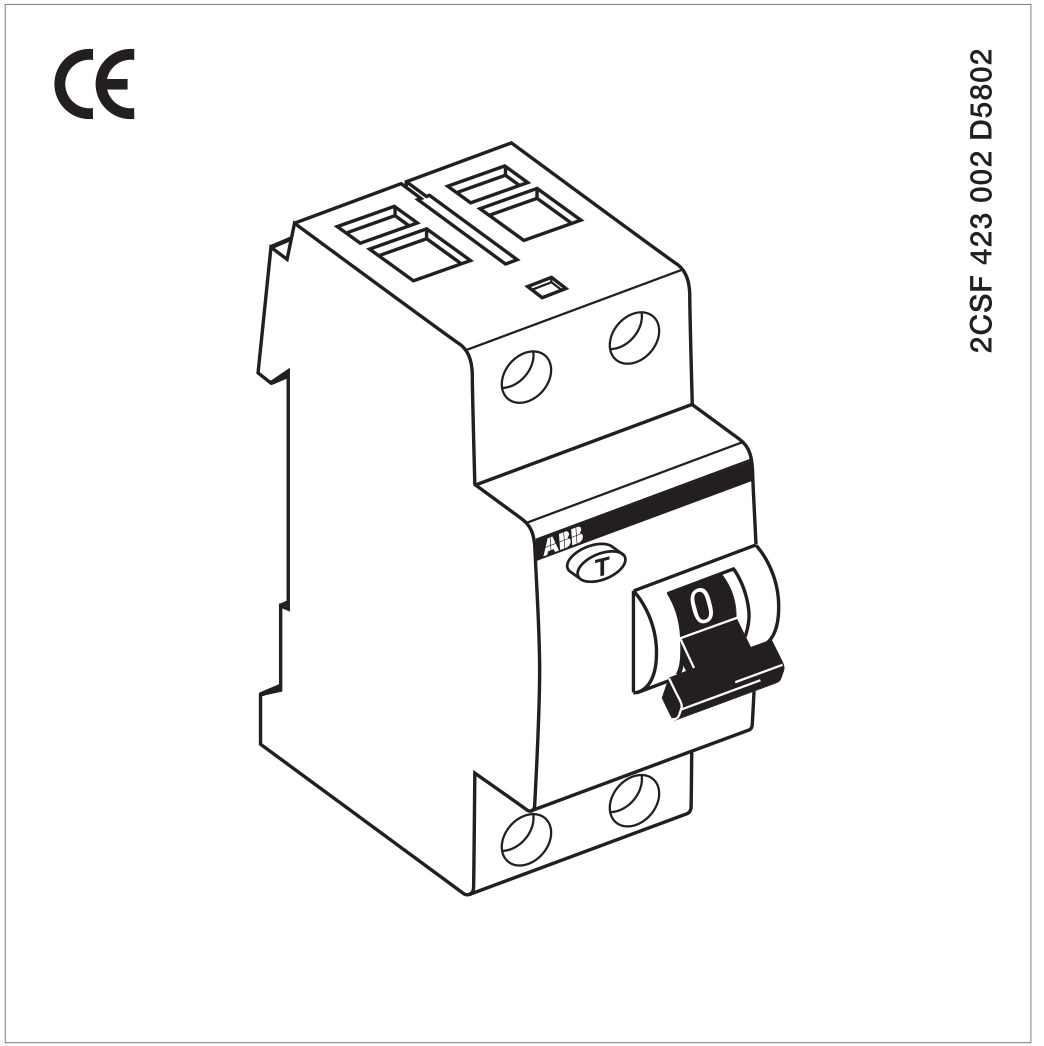
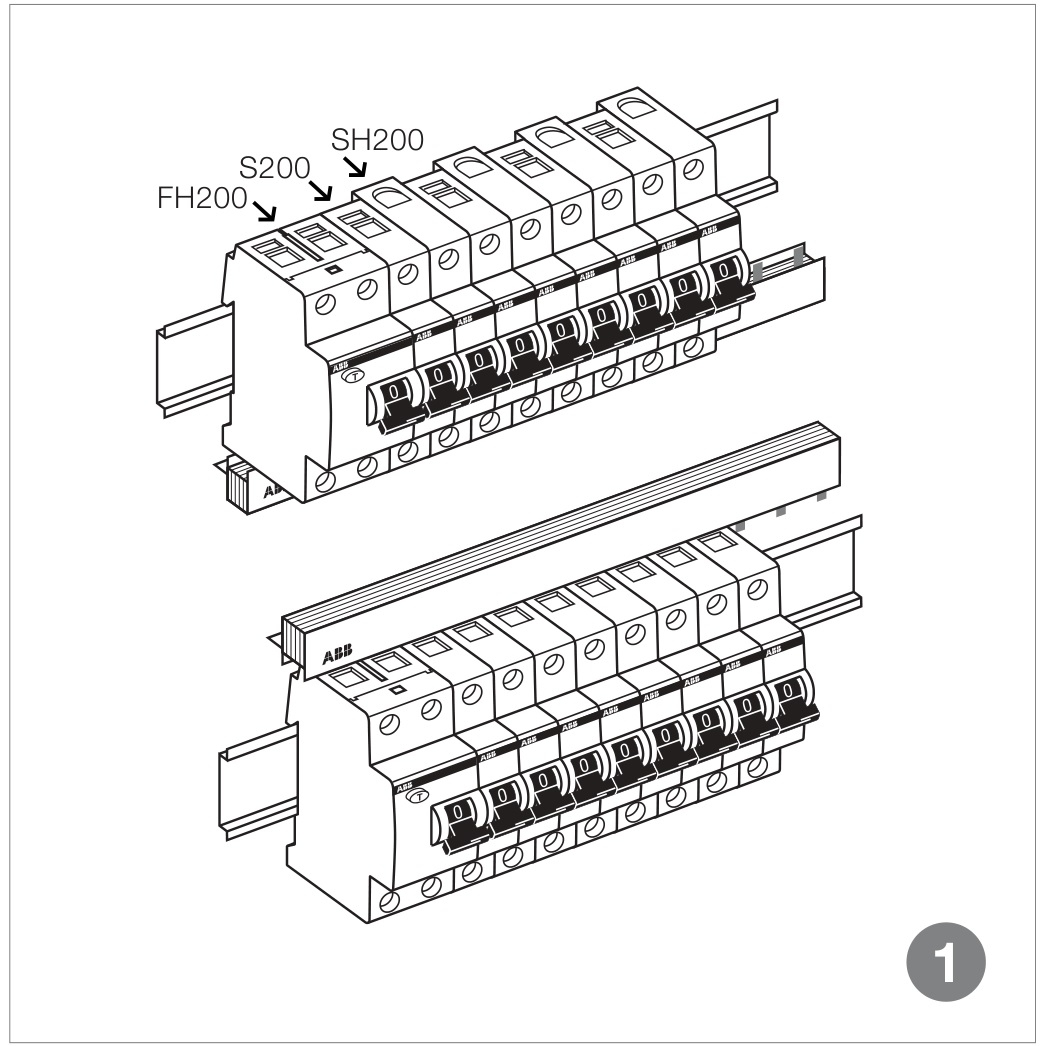
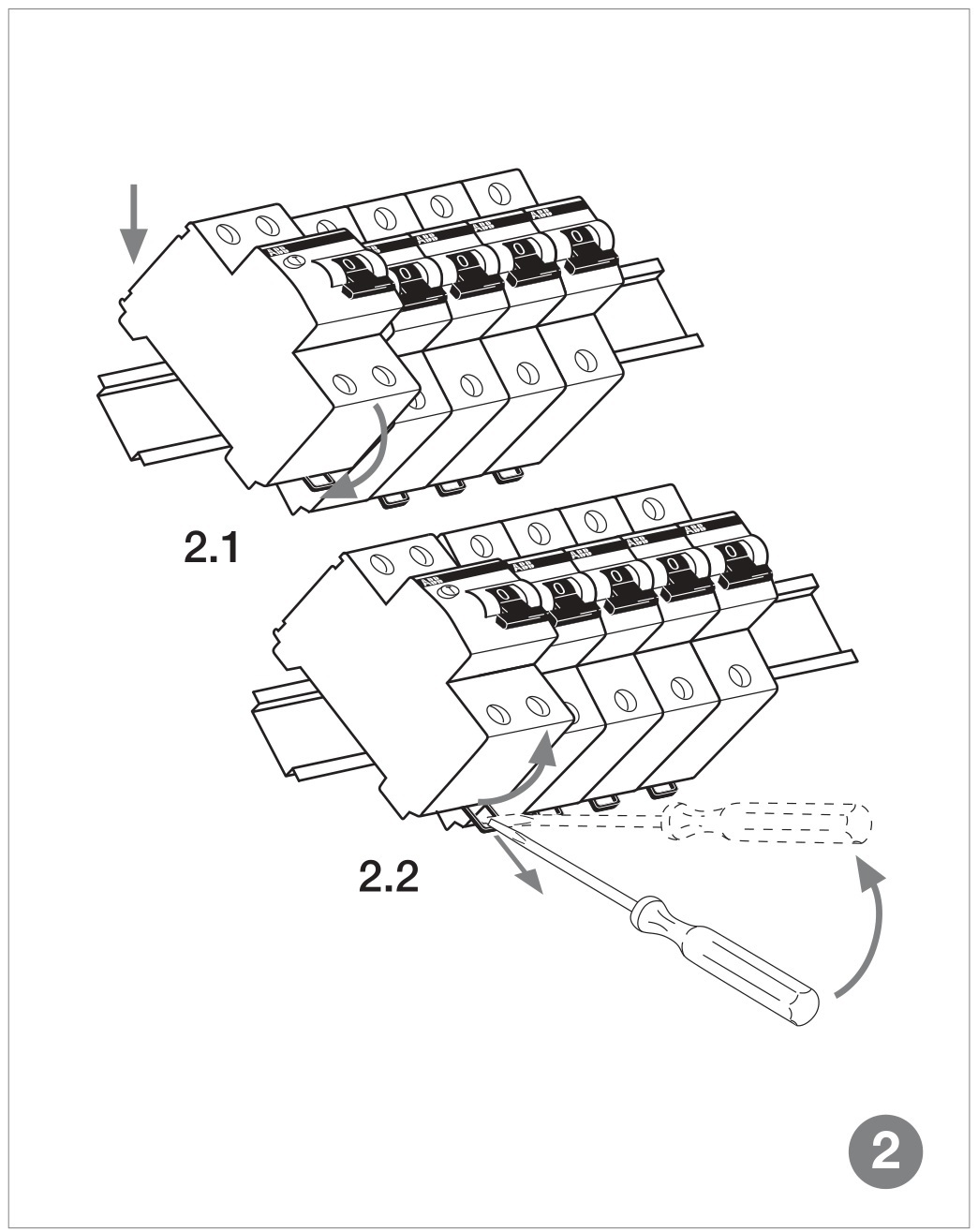
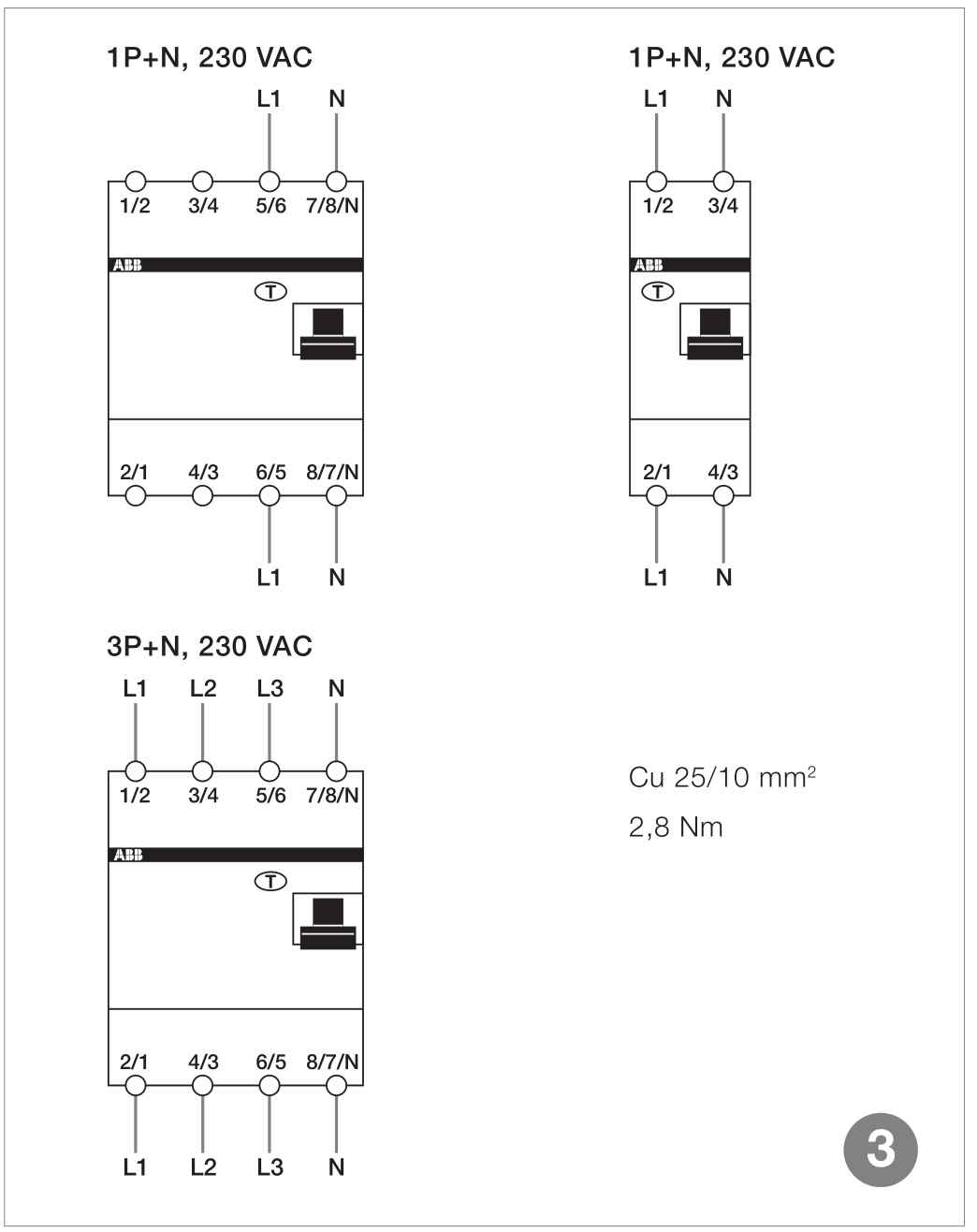
Technical data, residual current circuit breaker FH200A
See equipment plate data and refer below:
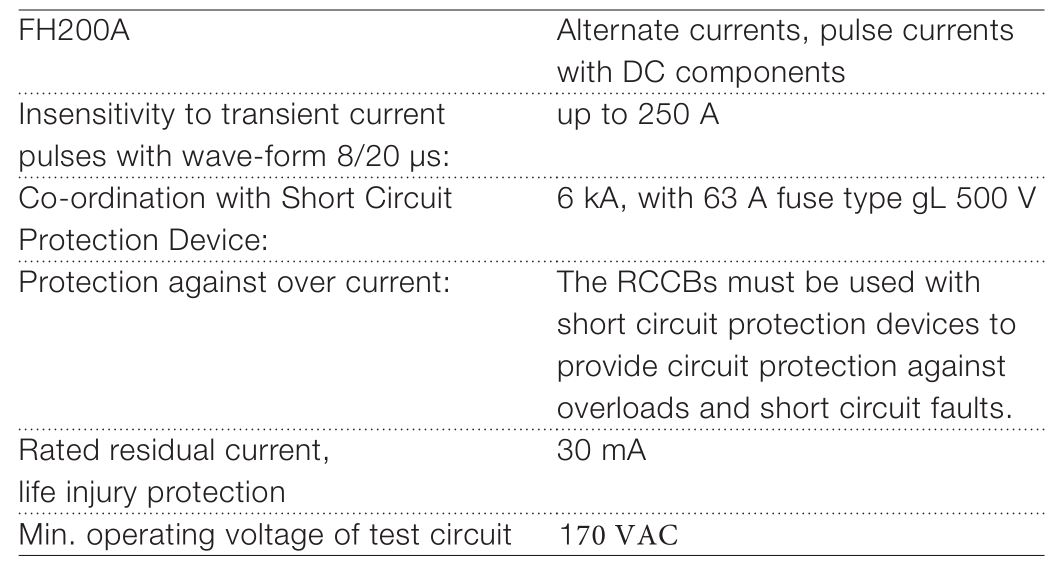
Power supply
The devices can be fed from either the upper or lower terminals.
Assembly
Designed for fitting on symmetrical DIN rail to standard EN 60715, 35 mm width, with fast clip included in the breaker. It is possible to realize the wiring with System pro M compact connection busbars on both the upper and lower side in the lower terminals (see figure 1) with S200 and SH200 series MCBs. Figure 2: Assembly on DIN rail (2.1). Removal (2.2).
Electrical connections
In a three-phase network with neutral (Un =230/400VAC…127/230VAC), all line wires, included the neutral one, should be connected (excluded the protection wire). It is also possible to use a four-pole RCCB in singlephase networks (see figure 3).
Instructions for the user
Remember to press the “T” test button at least every six months (circuit has to be energized). The RCCB should trip. If this does not happen, an authorized electrician should be alerted immediately because the system safety has been reduced. Always call a qualified technician to carry out any work on fixed or mobile electrical installation.
Environment protection
- The product is conforming to the European standards 2002/95/CE regarding the restrictions on the use of certain dangerous substances in the electrical and electronical equipment.
- It is necessary to respect the local regulations concerning the elimination of the packaging materials and of the circuit breaker and, if possible, to recycle them.
